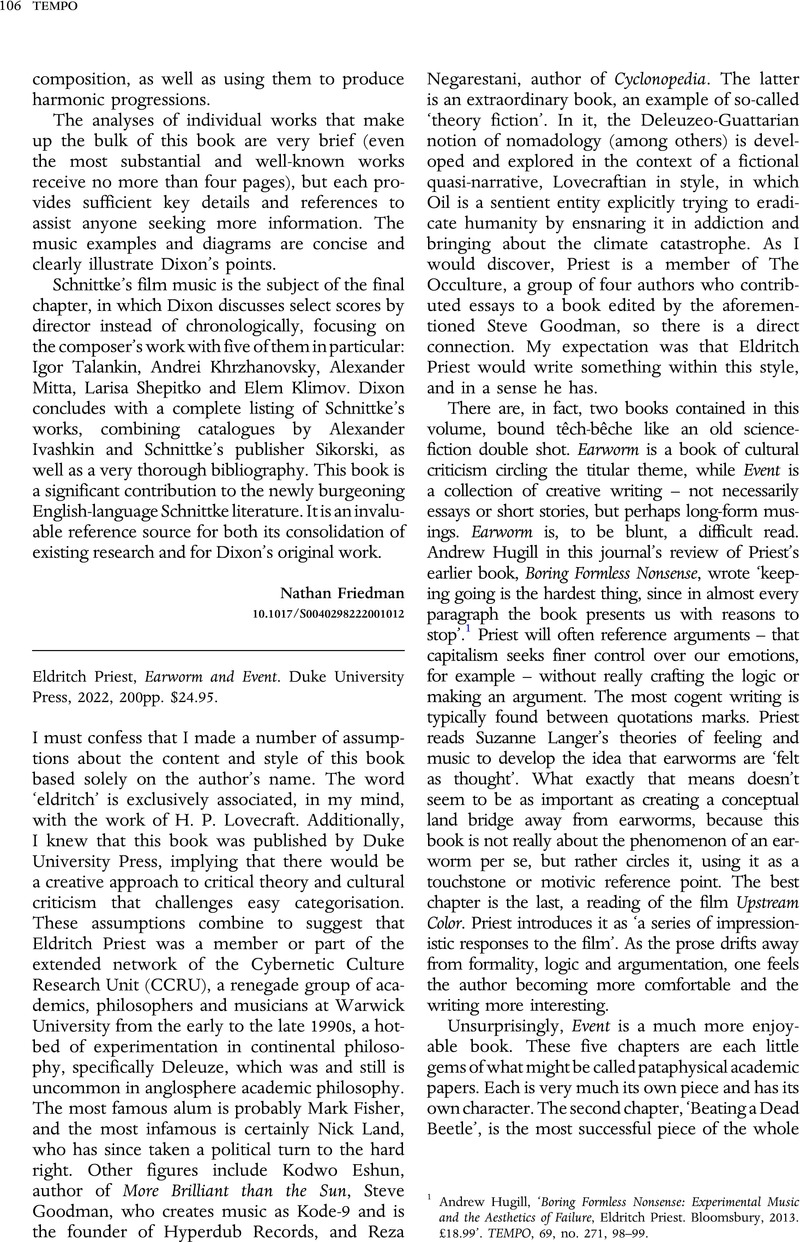No CrossRef data available.
Published online by Cambridge University Press: 11 January 2023

1 Hugill, Andrew, ‘Boring Formless Nonsense: Experimental Music and the Aesthetics of Failure, Eldritch Priest. Bloomsbury, 2013. £18.99’. TEMPO, 69, no. 271, 98–99CrossRefGoogle Scholar.